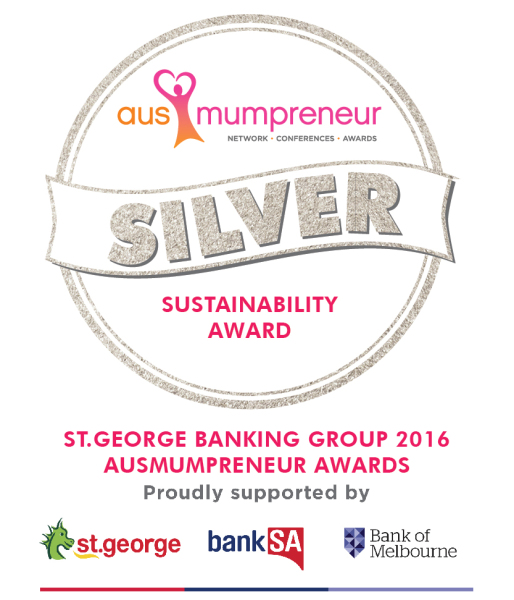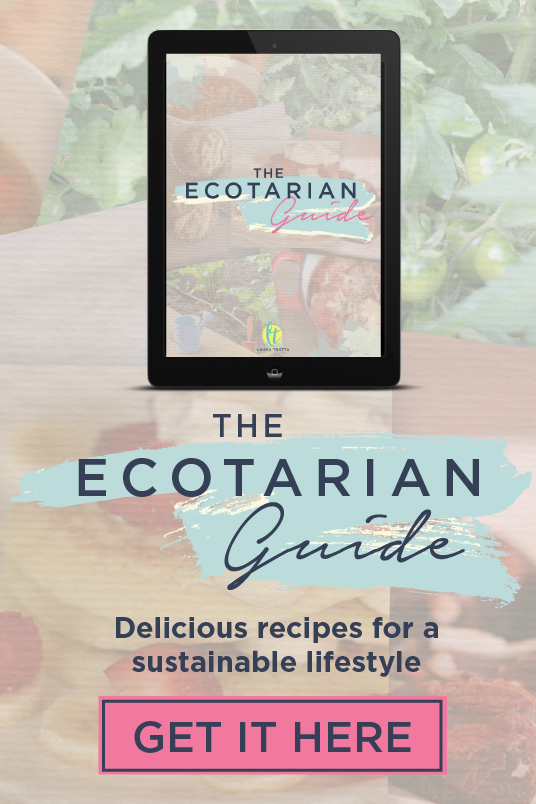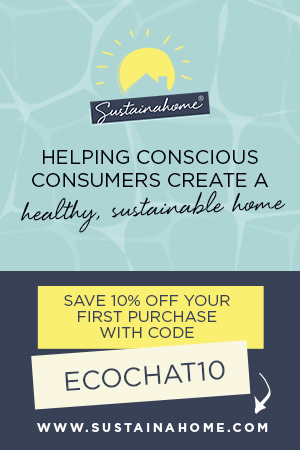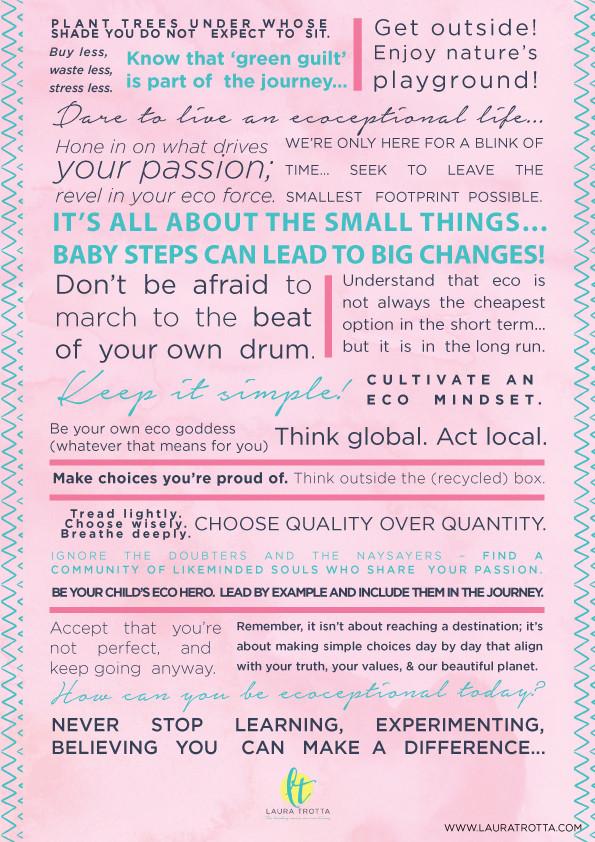Are e-readers like Kindle more sustainable than traditional books? Find out in my latest Eco Chat interview with author Lisa M White!
Podcast: Play In New Window
If you’re an avid reader and are keen to learn how to indulge your habit in the most sustainable way possible then you’re in for a real treat today!
I’m joined by my friend and author Lisa White, who only recently dragged me into the 21st Century where reading is concerned…..
You see, I’m an avid reader and ‘demolish’ on average one book a week from my local library. In fact I generally have at least three on the go at once – a novel I can escape in, a business book I can learn from, and a health or lifestyle book to continually improve my lifestyle.
I love the fact I can return them and get new ones…. aka so eco-friendly and economical!
Buuutttt I’ve been wondering how I can read while away for 5 weeks on my upcoming trip to Antarctica with limited Internet and the small luggage limit… so not practical!
Enter (finally) getting a Kindle……
I’ve always resisted purchasing a Kindle because, well I’m on screens all day and don’t want to ‘relax’ on a screen, plus I’m rather against E-waste. But I’ve just been swayed over to the side of electronic reading…. Even if I have my L plates on.
In this episode Lisa and I are chatting all about books v e-books (plus enviro implications) and how she recently made the leap from naturopath (and author of many cookbooks available through her Alternate Chef Kitchen business) to fictional author with her brand Contemporary Fantasy novella “A Touch of Magic” which is available now.
Let’s dive in!
Transcription….
What Prompted You To Make the Switch From Traditional Books to a Kindle and Why Do You Love E-Readers So Much?
Lisa:
Well, I was thinking about this recently actually. So there are a couple of reasons. Really the reason I started reading via an e-reader is when I started publishing books. I actually published the first few e-books without ever using e-books. In fact, I really didn’t like them. I hated them. But it seemed the thing to do, you do the print book and you had the e-book available.
It wasn’t until I came to publish my third book that I started fiction writing again for fun. I was listening to podcasts of a well-known fiction writer who has a blog and podcast for writers and stuff. She was saying, “If you’re writing and you’re publishing, you really should be reading the way that your readers as an indie author are going to be experiencing the content.” I was like, “Oh, light bulb, of course.”
I really should. So at the time, my brother-in-law had given us their old iPad and probably didn’t even have that. We had computers and that was it. I’ve never been credited with actually being one of the first people for anything electronic.
I am not an early adopter. I’m maybe a small step up from a luddite, but I’m not an early adopter. So I have to laugh that here I am, I’m the one that brought you here. So anyway, I started using an e-reading app on there because our designer was saying you need to test the Kindle format and the e-pub formats. Which are the two different e-book formats when you’re buying them online for e-readers. Just to make sure the links and everything working. So we started using the app.
Then after listening to this author saying, “You really should be testing it yourself in the format.” Because my Kindle for example is a black and white one. So when you’re doing recipes and stuff, a lot of that visual is colour. And colours in colour and in black and white, that makes a difference. It was like, “Ah, I really should be interacting with this as the way people are.” So I did and it’s certainly changed the way I write the books, the cookbooks.
The fiction not so much because after a while you adapt pretty quickly when you’re reading fiction. It’s just words on a page after a while and you’re absorbed and drawn into the story. You don’t really think about how you’re absorbing that story.
But with the cookbooks, I was like, “Oh my god, I’ve got too many links. The links have to go. This is cumbersome as a reader.” So it was really good. So that revolutionised the way that I wrote the book. I really simplified the whole thing and it brought it down to basics. And it was like, “Well, what do people really need when they’re going through my cookbooks?” It was just the recipe and a link to the video and an easy way to access all that information.
So it was really good. That’s what brought me kicking and screaming towards an e-reader. It didn’t take long to really fall in love with it because … and let me preface this with I love books. I am a book addict. I am a book buyer.
We’ve got nine bookshelves in our house. I’ve been decluttering, trying to clear the house out of stuff that we didn’t need anymore. The books stay of course, but we don’t have room for more bookshelves.
So when I went to the e-reader, it’s like, “Okay. This has some kind of cool potential.” Because Kindle have their cloud. Obviously I’ve got a Kindle, there are different e-readers, but that’s one that I’ve got. But they’ve got their cloud where you can store all the books you buy and you can download whatever you want on your device. They’ve got a couple of cool things where you get … I’ve got an app on my phone, the iPad, and on the actual Kindle reader itself obviously. I can download the book that I’m reading on any of the devices I want.
It can also sync with your other devices. So if I am waiting at a doctor’s appointment or whatever and I’ve only got my phone with me, I can read the book on my phone. Then when I come home that night, if I feel like reading more of my book and I pick up my Kindle, you open the Kindle and within about three seconds, you get this popup saying, “Oh, our records show that you were up to page 50. Would you like us to take you there?” “Yes, yes I would, thank you very much.”
Laura: So you don’t even need a bookmark.
Lisa:
No. I haven’t gone as far as highlighting text and making notes and stuff ’cause I don’t like typing on the keypad. Textbooks are things that I would still buy print. I’m a series person, so when there’s a favourite series like Game of Thrones or something, I will definitely be having that collection and Harry Potter. The keeper book ones. But there were a lot of books that I was buying that I liked, but I probably wasn’t really going to read that many more times. It’s great.
The other thing that I like about it is that you can carry your whole library on your Kindle, or your reader. Up to 1,100 books to 6,000 books, depending on the size of the reading device that you have. I just love that.
Without cluttering my house at all. Then the other thing is the books are less expensive as well. A lot of the indie books are less expensive. A lot of the print like books, a lot of the e-books from the main publishers tend to be a bit higher in price. But they’re still less expensive than a print book. That’s mostly because obviously the publishers want you to buy the print book ’cause they’ve got to move that stock, kind of thing.
Whereas for the indie authors, it’s better to have the ebook sell because then it doesn’t matter. You’re not mounting the stock anyway. That’s why I’ve become converted. I didn’t think I would. Even my husband, he was another like, “Yeah, thanks, Lisa, it’s not gonna happen. I’ll keep reading books.” So then I put the app on his phone and every time I look, he’s getting more and more books on his app.
So there’s some cool things about them which I was turned off to for many years. Was I not trying to publish, I never would’ve come across them.
Laura:
Similar to me! If I wasn’t about to go to Antarctica on a ship with no Internet and with a very small luggage allowance I’m not sure I would have made the jump yet. I think I’ve got a 15 kg luggage allowance which doesn’t really allow for many books!
The thought of being totally disconnected for just three weeks on that ship without just reading a few pages before I go to sleep every night. I thought, “Oh, panic stations. Lisa, what am I gonna do?” Yeah, so yeah, I guess if I didn’t have that on my very near horizon, I probably, I don’t know. I would probably still be, “No, I’m not going to switch to a Kindle.” But anyway. We would’ve gone for a walk on the beach and you would’ve convinced me otherwise.
Lisa: I’d say, “Laura, have a look.”
Like So Many Industries in Recent Years, the Publishing Industry Has Been Disrupted by Digital Innovation. Is There a Positive Environmental Benefit To More Consumers Opting For A Digital Read?
Lisa:
So this is something I’ve been wondering about for a while myself. So I have gone looking for numbers because as an ex-scientist, I like numbers.
So basically the short answer is it’s going to depend on who you’re chatting to. But the short answer is mostly it comes out pretty much even. Environmental impact wise. Which kind of surprised me. I expected the e-reader to be better for the environment. But I have seen other numbers, which basically say that, “Yeah, it is better, a little bit better.” As well. So there’s lots of factors that are going to affect whether or not it is better for the environment as well.
I think rather than making up global question are e-readers better for everyone? Because when you look into the account of the life cycle of them and what it takes to produce the e-reader and the minerals and everything to make with the electronics and all that stuff. Then it’s more a case of are you a high volume reader? Because if you’re a high volume reader or a book addict, then yes, definitely it’s goning to be worth your while. Because basically, I’ll give you some of the numbers that I found.
To talk about whether an e-reader is good for the environment, I need to just explain a little bit about life cycle of a print book. To make a print book, obviously the author writes it. Yeah, I know they probably write it on their laptop. Then they go to a mainstream publisher. It’ll go through many rounds of editing and all that. Then it will go and get printed. Print runs vary in size depending on who the author is. So a big name author would have anywhere from 200,000 books plus. A smaller author would maybe have anywhere from 5,000 books, it’ll depend on how big a hit they think that first book would be.
So the books that don’t, they get given to a bookshop on basically sale or return. So if the books don’t get sold, then they get either sent back to the publisher or destroyed. What they call pulping them. Some of that gets recycled or some will get sold at a very inexpensive price just to try and move them.
In terms of what does this mean for books? How is this … is an e-reader more environmentally friendly? I found some numbers. Now I had trouble finding really recent numbers, so these were mostly quoting articles from a study that was done looking at how green e-readers are back in 2009.
Basically they’re saying there’s about a million books published a year. Of those, two thirds are from indie authors. So the actual number of books then is probably a bit more than a million. Because not all indie books have an ISBN and this number came from one of the places that issues ISBNs. But so that leaves about 300,000 print books a year around the world published. So that’s titles, individual titles, not print runs.
In terms of what’s the book wastage in a year, the number that I found from 2009, one came from an article in the Daily Mail from the UK. Which said about 77 million books are unsold each year and get returned to the publisher. Most of those would be pulped or some will be sent out, some will remain. It’s a big number isn’t it? That data was from a UK publication. They said 61 million of those books were from the UK publishers. With some from overseas publishers.
Now I’m in an author group and someone in that group was saying that she used to work in a job where she would collect the books that didn’t get sold from the bookstores for one store chain in America. Basically, based on the number of books that she had to destroy at the end of each week, and she multiplied that by the number of weeks in a year and the number of stores that chain had. That number came to around 70 million books. That’s an average of novels. So it’s a phenomenal number.
Now you ask, like when we’re chatting, about how does this mean for Australia? Because obviously we’re the smallest market out of the UK and America, out of those three. I found the number on the author Ian Irvine, on his website. He’s got a really excellent article, a really long one, about what publishing and writing is all about. But he said on his website, the number he said is about 20,000 books per year published in Australia. So yeah, putting that into context then. However many of those become, how many of those have a small print run, and big print ones. I don’t have an actual number of books in Australia.
So what the environmental resources in making a book? Apart from obviously printing and all that. We think about the trees and the paper. Apparently one tree, I’ve got into another article I found from Hindu Business Line Inc. I think. I’ll give you a link. ‘Cause it was fascinating, absolutely fascinating read.
According to that article, he was saying, ’cause he was quoting the study that was done in 2009. But it’s a 2017 article. About one tree I think makes around 20 books. So from this, from the memory, I’ve got the notes written here. So hopefully I copied that correctly. Yeah, that was just really interesting.
So now let’s look at an e-reader. When you consider that … oh, and there were two different numbers quoted for what makes an e-reader worthwhile. As in more environmentally friendly than buying print books. One was 20 books makes an e-reader a better choice. The other was 100 books makes the e-reader a better choice. So anyway-
Laura: Is that per year? So if you read 20 books a year? Or just for the whole lifecycle?
Lisa: For the life of an e-reader.
Laura: What’s the life of an e-reader?
Lisa: So about three years could be, according to what I could find from these articles.
Laura: Yeah, right.
Lisa: Yeah. So it’s quite interesting isn’t it? So if you’re high volume reader and by high volume reader, I found a study-
Laura: What about one novel a week? Or one book a week? That’s probably on average what I read. I go the library every week and I’m always, I’ll get a book and a couple magazines from the library a week. Then return them a week later, pretty much. I think I’d be high volume then.
Lisa:
Yeah, you’d be high volume. Because the study I found rated average reading quantities. It was an American study and it was quoting numbers from 2012. But the average number of books read by adults were 12 per year. That was the actual average, but the median, where most of the numbers actually fell… So not counting the people who were reading like 100 books a week. And the people who were reading one book every 10 years. The average was five books a year, which was quite interesting really. I lot of people I guess are busy and they’re holiday readers. They mainly read when they have holidays. For those people then the library and books is probably just as environmentally friendly.
But if you’re a high volume reader, then it looks like the e-reader would certainly win.
In terms of recyclability of the e-reader, there are three different brands out there of the most common ones that you would hear of. That’s Kindle obviously, Kobo have one, and Nook have one, that’s the three main ones that you’ll hear the most about. All the companies seem to have a recycling policy. Certainly for the northern hemisphere. I haven’t looked in to see what our options are here in Australia.
Another option is if people buy them and they decide they don’t want them, they can certainly clear the memory and then sell them. So you can buy secondhand e-readers as well.
If you don’t have an actual e-reader device, you can just use your phone or your iPad, which are also recycled.
How Do You Get Started With an E-Reader such as a Kindle…. From purchasing one to downloading books to read?
Lisa:
Okay, so getting started with e-readers is surprisingly easy. So you buy them. Depending on where you are, you could either buy it online. First of all, you choose your company. So some people love Amazon, some people love other companies. So you find a device that you want.
There are different stores that sell the different devices here. So I think I bought mine from Office Works, but Big W sell them, and JB High Fi I think sell the Kobo. It’s been a while now since I went looking. But basically, some stores will sell them. So you can either go into a physical store and buy them, or you can pop online, create an account with a store that you want to buy it from, like Amazon for example. And you could buy it online if you wanted to do that.
The other thing is, you don’t actually need an e-reader. You could just read on your phone or on a tablet or iPad, if you wanted to without purchasing the e-reader. So basically all the companies that deliver e-books also have an app and the app is free. So you could just download the free app and read via that. What you would do is you create your account, you would then go and download the app for say, your phone. Then login to the app, once it’s downloaded on your phone.
Then you can start reading books. Just go to the website, choose a book you want to buy, login. It’ll have an option with for example Amazon, that’s the one I know the most because that’s what I’m using. You click on buy with one click and then it just says, “Where would you like this delivered to?” Because I’ve got the three, the apps in three places, I would just say, “Oh, Lisa’s Kindle.” Or my phone or whatever. I can choose where I want to download the book.
Or alternatively, if I’m out and about and I didn’t download the book on my phone, I can just go into the reading app and just choose the title from my library, which is in the cloud and say download. So providing I’ve got internet, I can download the book to my device that I want to read it from.
Then providing I’ve got battery power for that device, I can read it when I’m not online. So obviously you just can’t sync or do anything that would require internet like downloading, purchasing a new one, or I said, syncing the page with the other device if I’m not in range. But that doesn’t matter because if you’re not in range, you’re usually … so like when you’re in Antarctica, you’ll have the one device with you anyway. So as long as it’s charged and you’ve got your charger and a way to charge it, then you’re cool.
If you don’t have that and you’ve got a blackout, then books are the way to go. But having said that, when we had that massive blackout last year in Adelaide, so in South Australia, I was reading from my Kindle because it was charged and it was too dark to read. I didn’t want to waste the torch battery reading on my book. Whereas if the Kindle went flat, big deal because it was close to bedtime anyway.
In terms of the battery life, they last a surprisingly long time. I found with my Kindle the battery can last for weeks, depending on how often you’re reading it obviously and how bright you’ve got the screen.
Laura:
Giving my eyes a rest from the screen has probably been my biggest resistance to getting an e-reader. I’ve worn glasses since I was 11 years old. My first glasses were tinted because of the computer screens at the time, with their black backgrounds the green writing. I would get headaches from computers at school and everything and suffered from glare from the computers.
The screens are so much better these days, but I still find that if I don’t have to look at a screen, I don’t. And that’s why I prefer the physical books and resisting the e-readers. But when I was chatting with you, you were saying that obviously the e-reader doesn’t have that glare that an iPad or doesn’t have that blue light or whatever you call it.
Lisa:
I like reading off the e-reader. I don’t like reading off the iPad or tablet. I find the same glare from the screen and it’s brighter.
I love seeing the cookbooks in all their colour on the iPad. But I tend to read them before bed. I prefer reading Fiction on the e-reader. You can change the brightness of the screen as well. You can choose an option that isn’t back lit.
I’ve got a Kindle Paperwhite. It’s a black and white screen and it does have a back light that you can choose how bright you like it. I find it’s not as hard on the eyes. In fact, when I get tired, I like the fact that I can make the whiteness of the background a bit brighter as well. I find it easier to read without having to really squint and concentrate too much.
Laura:
Now for listeners who are going, like me, as I’ve just mentioned, love the physical nature of the books and are regulars at their local libraries, how can we feed our reading habits digitally without clocking up big bills?
Is there a way to rent or borrow books through an e-library to read on your Kindle?
Lisa:
Yeah, there is. In terms of for the buyers, so I know there are just some people who are book buyers. So I’ll just cover those options first. But yes, there is library options as well.
For the book buyers, basically e-books are usually less expensive than print books for starters. So that in itself saves a few dollars. How cheap are they? Amazon has a massive range of free books, so do iBooks and Kobo, and Nook. So they’ve got a range of free books that you can download. They’ve also got really inexpensive books from 99 cents to the average price of a novel is about say five dollars.
So it’s really inexpensive. Whereas obviously print books are anywhere from $15 to 20, depending on the size that you’re buying and all that. Whereas your mainstream published books … so say for example, the most latest, hot best seller that everyone’s talking about, that’ll be usually around 15 dollars. But it’s still usually a little bit cheaper than the print book as well.
So that’s when I weigh up, “Is this one I want in print? That I want on shelf? Because I’m gonna reread this series 100 times? Or is this a book I just really want to know what happens, but I don’t need to have it on the shelf?” Kind of thing. So that’s when you can make that decision for yourself.
If you’re a high volume reader, a lot of these ebook places, so Kobo, Amazon certainly, they have a programme for their high volume readers where they pay, in Australia it’s about $12 a month with Kindle. It’s called Kindle Unlimited. You can borrow up to 10 books at a time, but basically is unlimited. You can read as many books as you like for your 12 dollars a month. So when you’re finished reading them, you just go back and you get another 10 books basically. So that’s another way for really high volume consumers.
Then you’ve also got the borrowing from the library. So now you can actually go to your local library, you probably have to log on to their website using your library card number. They will most likely have a place which says, “Borrow from the e-lending library.” There’s an app that you can download.
My local library use an app called Libby. You just put that app on your phone, or your tablet, or whatever your device is, your iPad or tablet. It’s not compatible with the Kindle device, so it’d sort of be for your phone or for your iPad or tablet or computer. You can borrow eBooks and even audio books I just discovered today, which I thought was cool. ‘Cause I haven’t got into audio books yet. Not an early adapter.
So you can borrow them from the library too. I just think that’s really cool that that’s available. It’s just another thing in terms of your environmental impact as a reader.
There’s a service available called print on demand. A lot of independent authors use that route now instead of doing a big print run as well. So that’s great as well because then as a publisher and as a reader, you’re buying books that have not had 10,000 copies printed.
They’ve had the number of copies printed that people have bought. That’s another more environmentally conscious way of buying. It’s not gonna be obviously unless you know who’s published the book. But yeah, it’s great that that’s available as well.
From An Author’s Perspective, and I Know You’ve Printed Both Physical Books and Digital Books That Are Available For Purchase Through Amazon, What Are The Pros and Cons Of Publishing Via Each Method?
As a publisher I find that e-publishing is much better than print publishing. Let’s just say I still love print books. I plan to do print copies of my fiction when I write more. But the benefits are … so I talked about that life cycle of a print book earlier when we were chatting. As a writer, the benefits are I get to work out the story, it’s a lot quicker to publish with e-publishing.
Because if you go through a traditional publisher, it takes months, not just the actual editing process obviously because they’ve got so many different people looking at the editor, the layout, and the design and all that. But you’re going to send it away to the printer, the printer prints it, that can take about, depending on the size of the print run and where it is, a couple of weeks. But then where is that printer?
I printed locally when I printed, so the prices were much higher. But the benefit was it wasn’t coming across the seas from an overseas printer. I was driving to Salisbury and picking up the boxes. So yeah, from that perspective, that’s one reason why I chose a local printer. Even though from a business perspective, it probably wasn’t the best choice. From an environmental consideration, I wanted to do the right thing and that I felt was the right thing.
But yeah, the other benefit is so it’s quicker to get the books up and out into the world. Especially with print on demand service. I could upload my book file tonight and it could be available for sale from tomorrow. Then it’s just a matter of being printed and sent to wherever the person buying that book is. So that’s pretty cool.
The other benefit of doing the eBooks first is it gives the chance for the book to be out there for a little while. So you can get some feedback. So if there’s an error that you missed or something, you get a chance to correct that. Whereas if you go through the publisher, obviously they’ve got a lot more eyes on the book before it goes to the print run, but they do much larger print runs.
In one of the articles that I was reading, it was the Hindu Business link one, they put a stat which was kind of staggering, a number. Is one author’s book, because someone made a human error and who hasn’t done this before? Accidentally uploaded the wrong file to the printer when they sent it off. 80,000 books had to be pulped because it wasn’t the final version of the file.
I mean we’ve all had those days where we’ve just … you’re cooking and instead of adding a little bit of salt, you accidentally upend the thing and there goes your dish. But I mean, 80,000 books, that’s crazy.
So from that perspective, publishing with eBooks first is handy. I’ve decided to do it that way because then I get a chance to just check it over before I press send.
Laura: Or if accidentally you’d sent the wrong one, you can just-
Lisa: Upload it again.
Laura: Upload the right one, yeah.
Lisa: And I’ve done that. I was chatting with a friend yesterday who, she moved with the platform she was publishing it through, so she did 10 books and it was busy and she accidentally uploaded the wrong book.
Someone had emailed her and said, “Oh, I really can’t wait for book five.” And she’s like, “Oh, no. That is supposed to be book five.” And corrected it. So yeah, I think that’s the benefit as a writer and a publisher.
What made you take the leap from Naturopath (and author of many cookbooks available through your Alternate Chef Kitchen business) to fictional author on Amazon?
Lisa:
I’ve always written, basically. I’ve always loved stories. From when I was a kid, I couldn’t read, but I could recite word for word my favourite Walt Disney book. To the point where I remember … you know as a kid you have flashbacks of memories? And one flashback of memory is I was in the cot and my dad was reading my story to me and I could see my mom laughing, like on her hands and knees in the doorway and that seemed odd.
I didn’t understand why she was laughing, but as an adult, I was told it was because apparently dad was trying to hurry up the book reading process and he skipped a couple of pages and I was almost asleep and sat bolt upright in bed. And said, “Wait, you missed a page.” I told him exactly word for word what had been missed. So I’ve always loved the stories.
I started writing stories pretty much as soon as I could write. My first book was a nonfiction book in grade, I think it was in reception or grade one. It was about life cycle of a frog. So that was a key to the early science biology career.
Then I remember writing a fiction book, a fiction story with my sister. She was studying and I was sitting in the bedroom writing. It was a fantasy story. So I’ve just loved stories and I’ve always written. For a number of years, I had lots of beginnings of stories. I didn’t start finishing them.
So I finished my first full length manuscript or novel when I was 24, I think, 25. I did a how to write for Mills and Boon ’cause I always loved Mills and Boon. They’ve got such a cool story, the publisher. They used to be textbook publishers. My friend’s auntie had a physics textbook published by Mills and Boon. How cool is that?
Laura: I have a confessions…. I’ve never actually never read a Mills and Boon.
Lisa: Well, I haven’t for years. But back then I loved it. So that’s when I started writing and finishing the stories. Then had kids and so didn’t get much time to do much at all, especially when I was doing the cooking stuff. So I’ve only recently gone back to it and decided to write again.
Laura: So just remind me, how many books have you got published at the moment? I mean between your cookbooks and your novels?
Lisa: Okay, so I’ve only got one fiction novella that I’ve published at the moment. But my cookbooks, I’ve got, I think it’s about 13 now. I’m kind of losing track. I’ve got 11 in my little book of allergy friendly recipes series. Then I’ve got our print book, The Alternative Kitchen. I’ve also got two novellas and a full length, urban fantasy paranormal story I want to publish next year.
Laura: I wanted to buy it but I didn’t have my Kindle yet. That’s how we had this conversation. I go, “Lisa, where do I get your book?” I followed the links to your website, but I couldn’t download it to my laptop. Then I just got all confused and said, “Oh, no, you’ll need an e-reader.” Oh, okay.
Lisa: Or the app, or the app.
Laura: Or the app, yeah, or the app. But that’s kind of what prompted the discussion in the first place. I was like, “Where do I get this?” I also want to download one of your latest cookbooks with the party food, so I can get the dairy free cheese recipe that I’ve been wanting for ages in that little party food cookbook. Which brings me onto my last questions….
Where Can Our Listeners Today Go To Buy Your Various Books…. Cook books and Novels?
Lisa:
So they’re on the main ebook platforms. So obviously you can find it by searching in iBooks, Amazon, Kobo, Barnes and Nobles, and quite a few other places. Or you could just find them all and all those links from our website at Alternative Chef Kitchen.
When you go then you’ll see on the menu there will be a bookstore page. Just click on that and it’ll take you to the page with all our books.
Laura: Great. And for your novella?
Lisa:
So that’s called A Touch of Magic and you can again, that’s in all the main e-reading platforms or you can go to https://lisamwhite.com/a-touch-of-magic/ and you’ll see the book there and you just click on that. That’ll take you to the different links to the different stores.
Laura: Excellent. Would you mind just giving a snapshot on what Touch of Magic’s all about?
Lisa:
Okay, so you’ll have a laugh. So basically it’s about a plastic surgeon who is anti anything natural health. Anything woo woo. She puts it all in the same box, it’s all quackery. Everything from naturopathy to crystal, weighting crystals, it’s all quackery. So she’s not a fan at all and not a believer. To her credit, she’s seen dodgy stuff in her clinic over the years as well. Which has helped build her take on that. But basically she’s quite judgemental about a lot of things.
So she gets a surprise visit by a spiritual entity who gives her a gift. It turns out that her gift is hands on healing. So she becomes a quack and starts to get judged by her peers a little bit the way that she’s looked on others.
So yeah, the book was written for an anthology and a theme was war torn in that anthology. I don’t really read war books at all, but I like the idea of playing with the concept of being at war with yourself and everybody’s kind of fighting a battle that you don’t necessarily know anything about. So it’s how people easily judge others and that sometimes you don’t know the full story of what’s going on. So I had fun playing with that.
Laura: Well, I’ll download that for my upcoming trip because it sounds very, very interesting!
Lisa: Yeah. Thank you. Well, I hope you enjoy it.
Laura: I will. Well, thank you so much for coming on Eco-Chat today, Lisa, and chatting all about e-readers versus traditional books and how to navigate the world of e-readers. Especially for those of us that are yet to get started. I really appreciate your time and your insights. Thanks so much.
Lisa: Thanks for having me.
Additional Resources….
Are e readers more eco friendly than print books?
- http://www.dailymail.co.uk/news/article-1239252/How-77million-books-year-turned-pulp-fiction.html
- http://www.thehindubusinessline.com/blink/cover/ebooks-and-pulped-fiction/article9733524.ece
- https://green.blogs.nytimes.com/2009/08/31/are-e-readers-greener-than-books/
- http://www.ian-irvine.com/on-writing/the-truth-about-publishing/
- https://outthinkgroup.com/the-10-awful-truths-about-book-publishing/
- https://www.statista.com/topics/1177/book-market/
- https://www.huffingtonpost.com/luxeco-living/how-green-are-ebooks-and-ebook-readers_b_3468080.html
- http://www.pewinternet.org/2014/01/16/a-snapshot-of-reading-in-america-in-2013/
- https://www.techwalla.com/articles/how-many-books-can-a-kindle-hold) 2012 article
- Cubitt, Sean (2017) Finite Media: Environmental Implications of Digital Technologies (a Cultural Politics book
(https://www.amazon.com.au/dp/B01NBEX0GI/ref=cm_sw_r_cp_ep_dp_FJjwAbPMVD8XB)
Sustainable for your wallet
- Ebooks – generally cheaper than print books – ibooks, kindle, kobo, nook, google play and others.
- Subscription services for high volume readers:
- Borrowing ebooks and audio books from the library http://www.libraries.sa.gov.au/page.aspx?u=535
Recycling e-readers
- Recycling kindle
- Recycling kobo
- Recycling nook
- Recycling ipad
Lisa White’s Books Can Be Purchased From:
Alternative Chef Kitchen: https://alternativechefkitchen.com/store/
Lisa M White: https://lisamwhite.com/books/
Podcast: Play in new window | Download
- Sustainable Home Design- factors to consider to maximise sustainability - July 28, 2022
- Advantage and Disadvantages of Tiny Houses - May 31, 2022
- How School Strike 4 Climate is Empowering Youth to Fight for Their Future - May 1, 2022

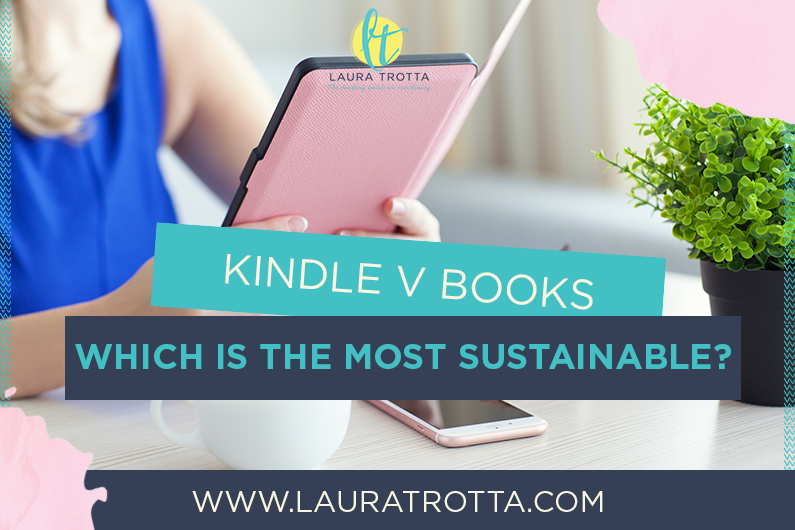
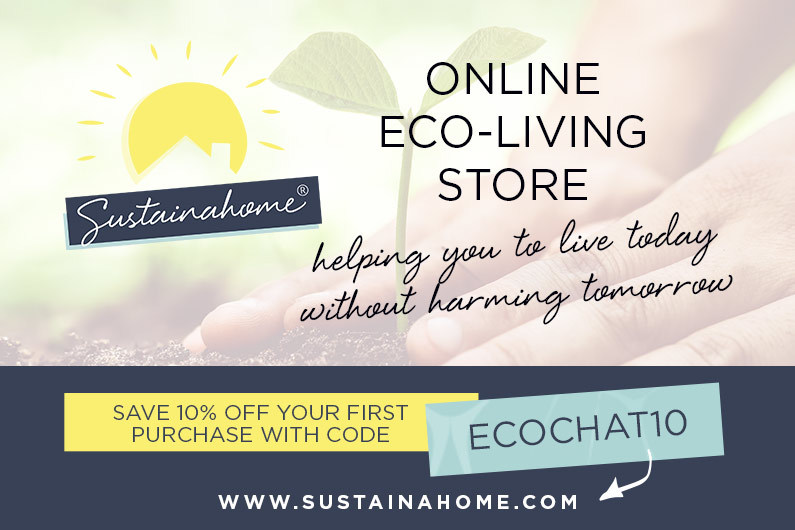
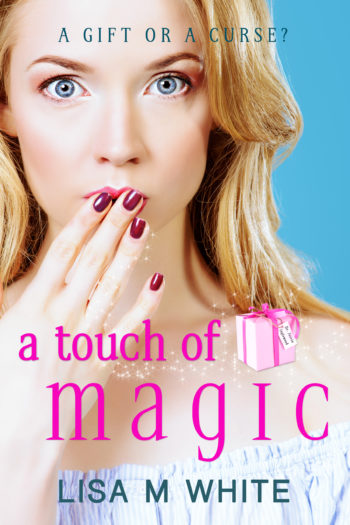
 Laura Trotta is one of Australia’s leading home sustainability experts. She has a Bachelor of Environmental Engineering, a Masters of Science (in Environmental Chemistry) and spent 11 years working as an environmental professional before creating her first online eco business, Sustainababy, in 2009. She has won numerous regional and national awards for her fresh and inspiring take on living an ‘ecoceptional’ life (including most recently winning the Brand South Australia Flinders University Education Award (2015) for the north-west region in SA and silver in the Eco-friendly category of the 2015 Ausmumpreneur Awards). With a regular segment on ABC Radio and with her work featured in publications like Nurture Parenting and My Child Magazine, Laura is an eco thought leader who’s not afraid to challenge the status quo. A passionate believer in addressing the small things to achieve big change, and protecting the planet in practical ways, Laura lives with her husband and two sons in outback South Australia.
Laura Trotta is one of Australia’s leading home sustainability experts. She has a Bachelor of Environmental Engineering, a Masters of Science (in Environmental Chemistry) and spent 11 years working as an environmental professional before creating her first online eco business, Sustainababy, in 2009. She has won numerous regional and national awards for her fresh and inspiring take on living an ‘ecoceptional’ life (including most recently winning the Brand South Australia Flinders University Education Award (2015) for the north-west region in SA and silver in the Eco-friendly category of the 2015 Ausmumpreneur Awards). With a regular segment on ABC Radio and with her work featured in publications like Nurture Parenting and My Child Magazine, Laura is an eco thought leader who’s not afraid to challenge the status quo. A passionate believer in addressing the small things to achieve big change, and protecting the planet in practical ways, Laura lives with her husband and two sons in outback South Australia. 